Have you ever met a person who was heavily addicted to a substance and then, suddenly one day, they had an epiphany and stopped using it completely? Without “doing” anything? No therapy, no treatment, no nada?
It’s because their subconscious mind finally clicked in with what their conscious mind believed. Their whole mind, body, and spirit, if you so call it, aligned around the intention to stop using.
Something I’ve learned in my health and spiritual journey is that, if you want to stop drinking, you can’t be sure you’re done with alcohol for good until your subconscious also believes it doesn’t want to drink.
Let me explain!
Using Willpower vs. Removing the Desire to Drink
As I mentioned, to successfully stop drinking, we must change our underlying beliefs about drinking alcohol. This is the opposite of using willpower. People who use willpower still have that underlying desire to drink, so they end up white-knuckling it. However, if you can remove that desire, it becomes effortless.
For example, if you were deathly allergic to peanuts, you’d probably have zero desire to eat them. Or, for me, I’m not particularly eager to eat fish, so there’s never any temptation to eat it. Easy!
So how do you remove the desire and thus eliminate the need for willpower?
A desire for alcohol comes, in part, from our beliefs about it. Beliefs are made both consciously and subconsciously (which is why they are deep-rooted and seem hard to change).
But, fortunately, if we examine our beliefs, we can consciously replace them. (And, if you really want to get into the whole concept of changing your beliefs to change your behaviors, and vice versa, Bruce Lipton’s The Biology of Belief is a highly recommended read about it!)
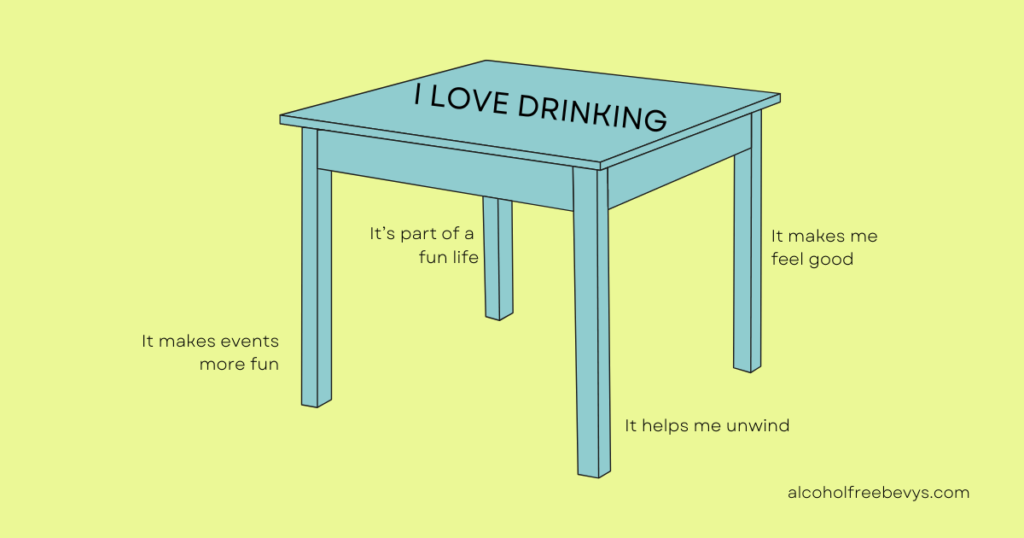
That’s because beliefs are like tables. We gather references (legs) for our beliefs (tabletop). Like tables, beliefs are strong, but their legs are no match for an axe!
It’s time to axe the belief that alcohol is what you desire to feel good.
Try This Exercise to Change Your Beliefs About Drinking Alcohol
This is where the journaling comes in. All you have to do is write down every belief you have about alcohol that you no longer want to believe and destroy its legs!
Take just one of my old beliefs and the new belief I used to quash it:
OLD Belief – Everyone drinks. It’s a normal part of adulthood.
- Leg 1 – My friends and family drink every time I see them.
- Leg 2 – People go to happy hour any day of the week.
- Leg 3 – Everyone is constantly drinking on tv.
- Leg 4 – Drinking is a reward for adulting.
NEW Belief- It is better not to drink and not follow the status quo.
- Leg 1 – Most people have a love/hate relationship with alcohol. Why love something that doesn’t love you back?
- Leg 2 – Most people are not extraordinary. I aspire to live a fuller life and reach my maximum potential. Alcohol, with all it takes away from us, keeps us small.
- Leg 3 – All drugs are fun until they aren’t. Most people don’t understand that drinking is a subpar way to feel good and have not reached the gray area of drinking (or they are there, but just don’t realize it).
- Leg 4 – Drinking only adds to the stress of adulting by negatively impacting my mental and physical health.
Do this with every single belief you have, however silly it may feel.
Writing it down helps to clear it from your mind.
Write and write until your hand hurts. Write down every single old and new leg for your tables that you can possibly think of.
My other false beliefs about drinking alcohol were:
- The buzz is nice.
- Drinking makes me confident.
- It’s how we socialize.
- It’s a reward.
- Life is boring without alcohol.
- Traveling (and solo traveling) is better with drinks.
- Drinking is worth a hangover every now and then.
I wrote new beliefs to counter these, as well.
Now, new beliefs about alcohol are firmly planted in my mind and deter me from drinking.
“Life is too precious to waste it wasted.”
– Chris Scott, Founder of Fit Recovery
Journal to Quit Drinking by Changing Your Beliefs: Step-by-Step
Ready to get started? Here’s what you’ll do:
- Gather a pen and a notebook – writing things down by hand is better (seriously, science says so, too).
- Grab a nice hot cup of tea, and sit somewhere you feel calm. Maybe add some nice music.
- Ponder every reason for drinking and all of the attitudes/beliefs you have about booze.
- Write them all down.
- Then, on a new page, draw a line down the middle, creating two columns.
- At the top of the left-hand column, write down your first “old” belief.
- Then, beneath it, list every reference or memory you have that supports the belief (aka its legs).
- On the right column, do the exact opposite.
- List a counter-belief you wish to believe with all your heart and soul.
- Then, beneath it, list every reason/piece of evidence you can think of to forge that new belief.
- Repeat the process with every belief you want to abolish about alcohol.
- Then, read to yourself your new beliefs over and over again.
Get Witchy With It
Just doing the writing was enough for me, but to go a step further, tear these pages out of your notebook and cut off the left-hand side (the old beliefs).
Then, grab some matches or a lighter.
Take those old beliefs (pieces of paper) and, one by one, say “thank you” and then burn them.
You can hang up your new beliefs somewhere you will see them daily for maximum effect. Turn them into daily mantras!
This Only Works if You’re Realistic
I want to add one more thought here: this will only work if you create realistic new beliefs about drinking alcohol.
For some, it’s impossible to stop believing that alcohol can make you feel good. Because it most definitely has. Multiple times. And it might not have always been a problem.
So, create the new belief that alcohol served you at one point.
To pretend it didn’t, or that you didn’t drink responsibly when you started, would be like self-gaslighting, as the Sober Curious author, Ruby Warrington, says.
Therefore, I won’t lie; I drank “normally” for a long time before I questioned my relationship with alcohol. That’s the nature of the beast, though, isn’t it? No one starts out addicted, and no one sets out to become addicted.
But, if I were to say alcohol was a devil from day one, I’d be delusional. And, I would fail to believe it. The exercise wouldn’t work.
If you’re on the path to stopping drinking, you can benefit from believing it’s an exhaustive resource.
Consider that drinking alcohol was fun for a while, but now it’s not a behavior that’s worth engaging in. You’ve had enough.
For example, I gave up gluten because I grew intolerant. Now I can say the same about alcohol!
Sure, maybe I miss a bagel, but no way do I want to eat one and get sick for days! The same goes for a glass of wine. For so many reasons, it’s just not worth it… anymore!
Program Your Beliefs to Change Your Life
The best part is that you can use this journaling method to change ANY limiting belief.
If you believe you’re not good enough, change it. If you believe you will never find the right partner, change it. If you believe you can’t make more money than you do today, convince yourself of the opposite!
We all live according to the narratives in our own heads. Our realities start there. We seek out evidence that confirms what we already believe and thus attract more of the same. Change your narrative to one that is more conducive to your ideal life, and you’re already halfway there, my friend.
Hope this helps! Let me know, are there any other journaling methods you’ve used to stop or change your beliefs about drinking alcohol? Drop a comment!
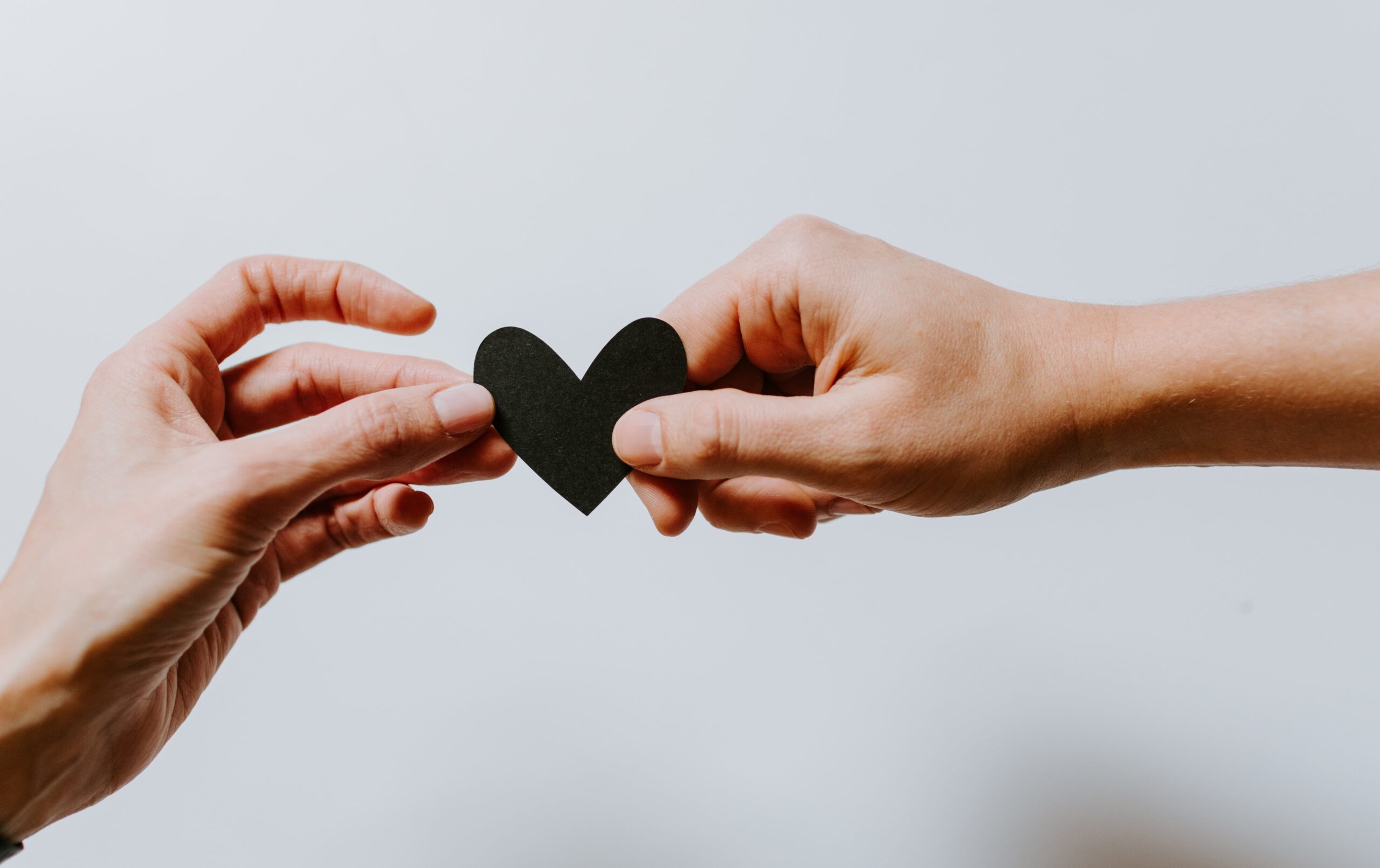
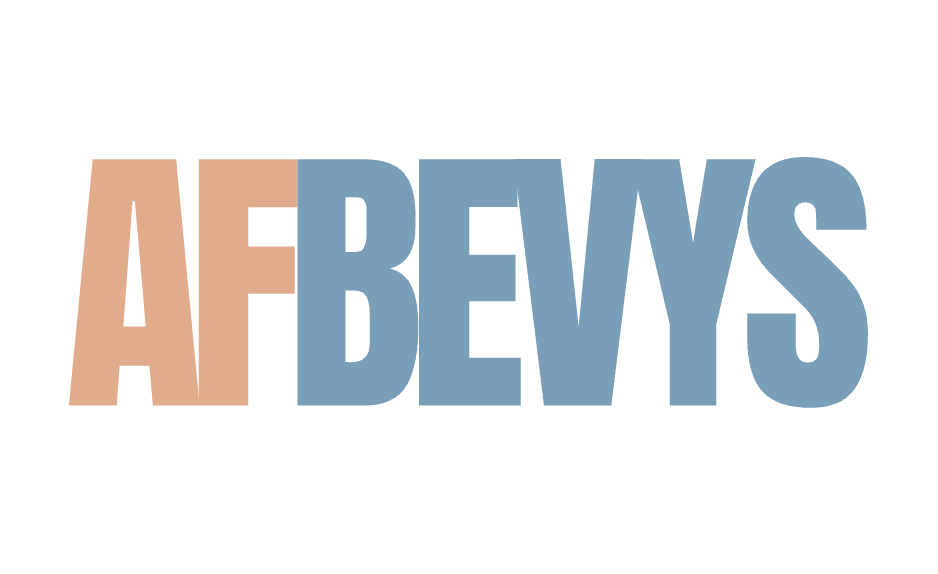

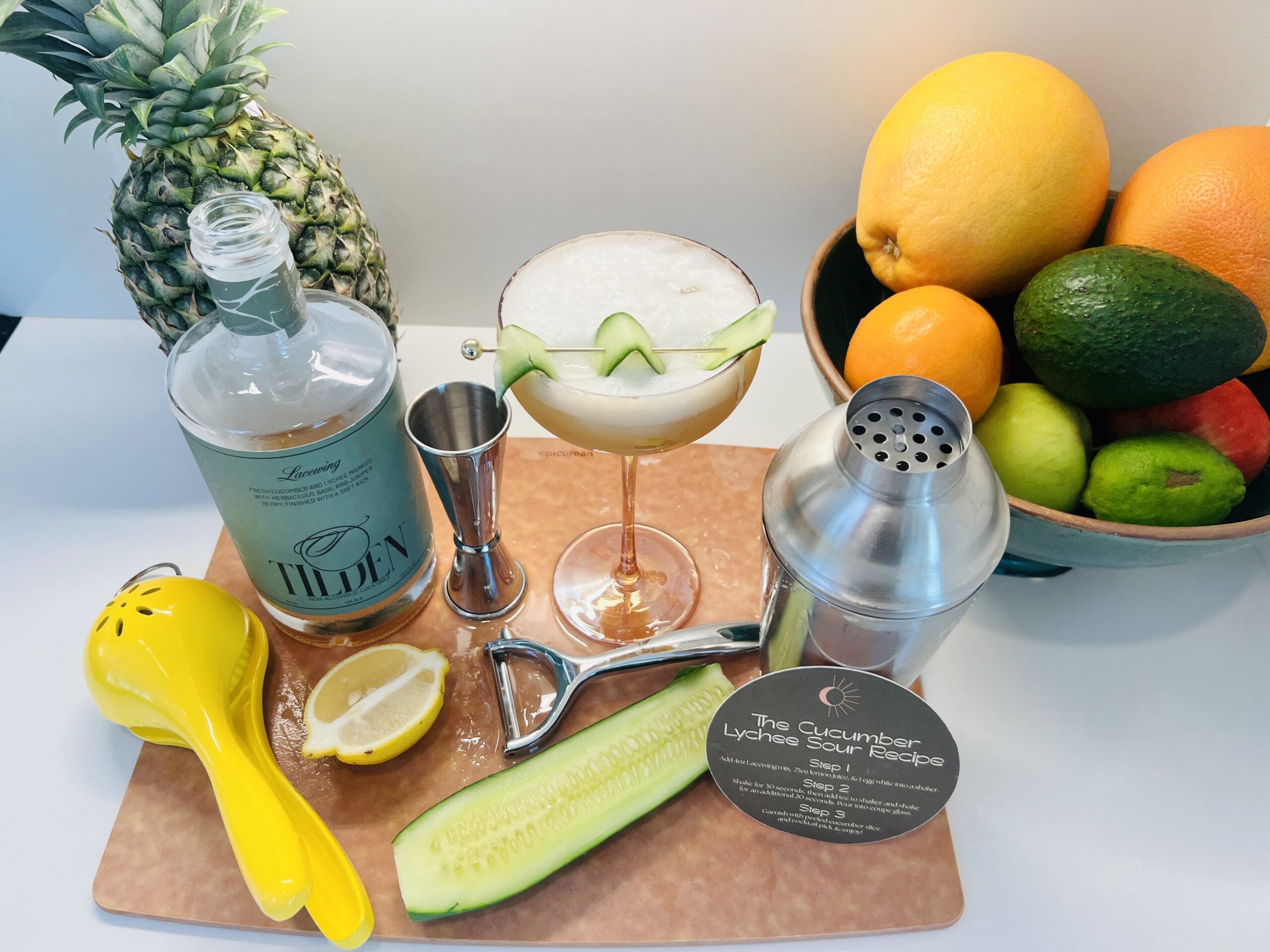
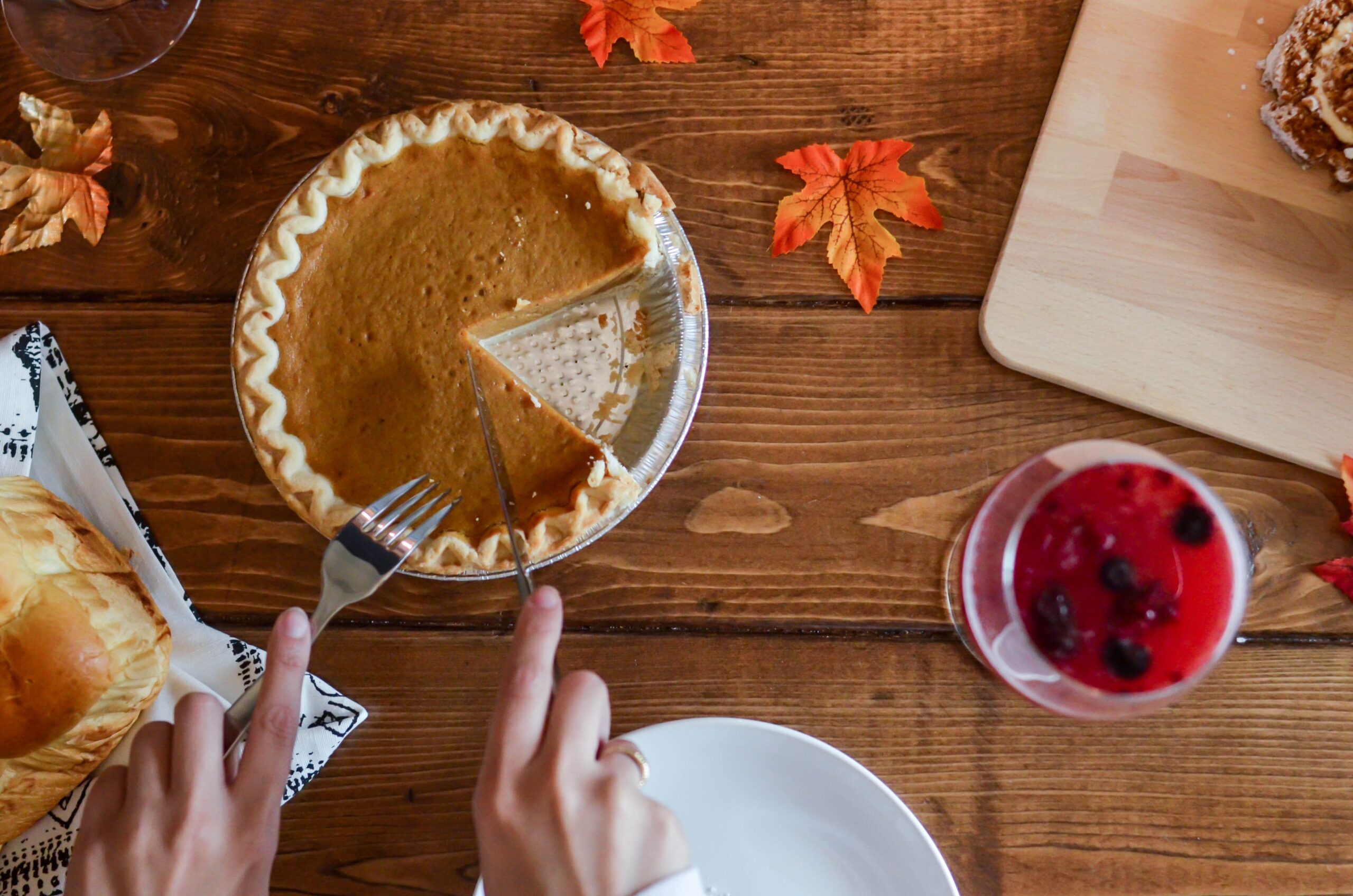
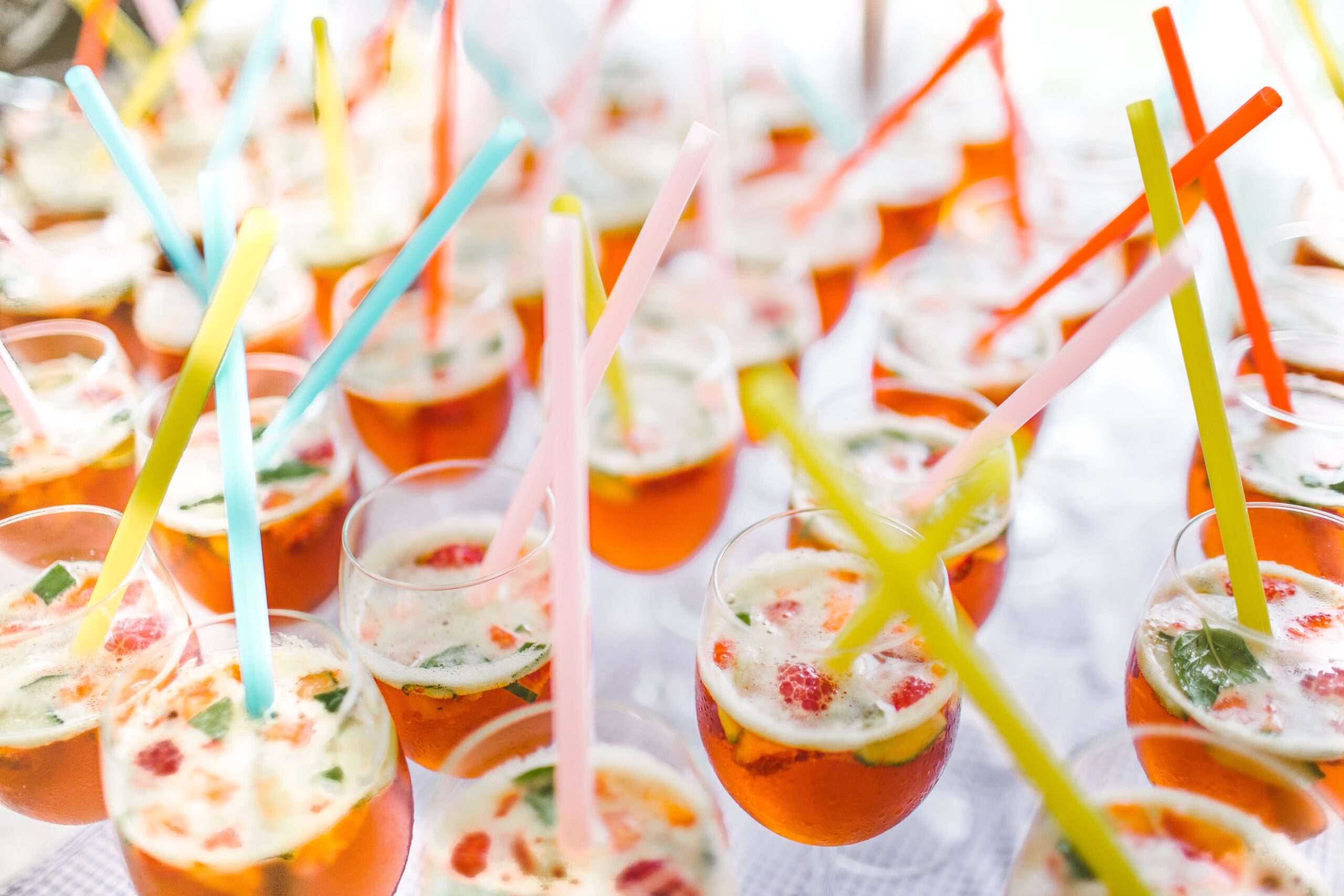
Leave a Reply